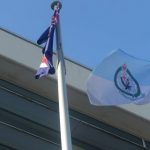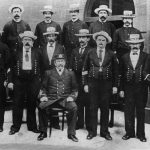NSW Police Fail to Secure Crime Scenes When Officers Are Suspected of Serious Crimes

Crime scenes are being left unsecured in 42% of cases where NSW police are involved in death or serious injury.
The failure has been detailed in a report by the Police Integrity Commission (PIC), raising concerns that crime scenes are being left liable to interference.
“This meant that potentially 42% of incident scenes were at risk of loss of evidence or interference with evidence through either inadvertence or deliberate misconduct,” the report found, after investigating 83 critical incidents between 2009 and 2012.
The PIC investigation, labelled Project Harlequin, looked into a number of high profile incidents, including the death of Brazilian student Roberto Laudisio Curti after he was repeatedly Tasered by police, the killing of mentally ill man Adam Salter, and the death of Steven Bosevski after he was ‘restrained’ by police while watching a St George Dragons game in 2010.
Specific findings
- Separation of involved officers
The report found that in approximately half of the cases, police failed to separate officers involved in critical incidents, an important protocol designed to prevent collusion.
“Separation of involved officers reduces the risk that these officers may collude to create a shared (and possibly more favourable) account of what happened, and is one of the key requirements of a critical incident investigation if the risk of misconduct is to be minimised,” the report stated.
- Poor record-keeping
The report also identified “significant gaps” in records held for critical incidents, when compared with other investigations of other serious crimes. This lack of documentation was apparent in two thirds of cases, hampering the PIC’s ability to assess the adequacy of police responses.
It was also critical of the fact that there is no external oversight of serious incidents involving police.
“In these circumstances it is difficult to have confidence that an investigation has been conducted in an ‘effective, accountable and transparent manner’,” the report found.
- Conflict of Interest
NSW Police Force guidelines require police investigators to consider conflicts of interest for all critical incidents.
However, the report found that conflicts were only considered in 33% of cases.
- Not learning
The report found that senior police are not giving adequate consideration to the prevention of future critical incidents.
“None of the 27 region commander reports gave consideration to broader lessons to be learned from the incident, or proposed improvements to police systems, policies, practices and/or training as required by the guidelines,” the report stated.
Existing accountability measures
Last year, the NSW government passed legislation to replace several police oversight bodies with a single body, the Law Enforcement Conduct Commission (LECC).
Greens MP David Shoebridge said at the time that the Commission does not address the key failing of the present system – which is that police are investigating police, and will continue to do so under the LECC model.
“When it comes to critical incidents this oversight body will largely be reviewing internal police investigations, rather than doing the investigations themselves. We’re repeating the mistakes of the past,” Mr Shoebridge stated.
Between 1 January 2013 and 24 August 2015, a total of 62 critical incidents involving NSW police officers were investigated. Only 2 adverse findings were made, and no disciplinary action was taken against any officer.
Problems with the LECC model
It has since been reported that the LECC is already falling behind in its duties to review police misconduct.
As of May 2017, the LECC had not even begun taking complaints against police, while the oversight bodies which it replaced have been forced to shed staff and services on the understanding that the handover would have already taken place.
The NSW Ombudsman says there are only nine staff members currently working on police complaints, down from 32 last year. The underfunded body admits not conducting any reviews of complaints against police since last year.
President of the NSW Council for Civil Liberties, Stephen Blanks, points out that the current situation leaves police with virtually no oversight. “A properly independent body responsible for dealing with complaints about police is a critically important aspect of ensuring that police are properly accountable,” he added.
Mr Shoebridge believes the current situation has arisen from “either sheer incompetence or indifference”.
“There’s literally no oversight of police in NSW at the moment … the government need to come clean with the people of NSW to say what has gone wrong to stop the implementation of this essential reform”, Mr Shoebridge stated.
Recommendations
The report made 16 recommendations designed to increase oversight, including better record keeping for critical incidents, regular compliance audits and better identification, management and recording conflicts of interest.
But with oversight bodies being underfunded and police continuing to investigate themselves when it comes to critical incidents, many are pessimistic about the prospects of the situation improving in the future.







